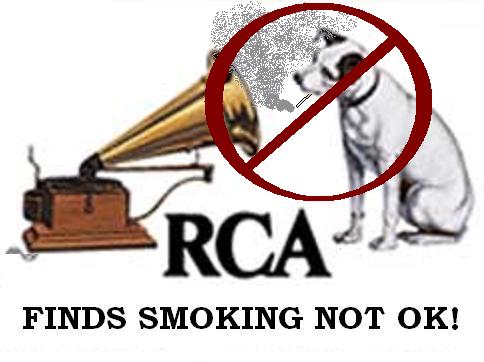 The Rabbinical Council of America just recently (June 30th) ruled that smoking (at least of cigarettes, the article seems vague as to other types of tobacco use only directly mentioning cigarettes, though their logic should apply to any tobacco use,) is NOT permitted under Jewish Law. Read the full text of the Jewish Legal decision here. (It's also a great read for people who just want to get an idea for how Jewish Legal decisions are reached. It's written clearly, and mostly in English.)
The Rabbinical Council of America just recently (June 30th) ruled that smoking (at least of cigarettes, the article seems vague as to other types of tobacco use only directly mentioning cigarettes, though their logic should apply to any tobacco use,) is NOT permitted under Jewish Law. Read the full text of the Jewish Legal decision here. (It's also a great read for people who just want to get an idea for how Jewish Legal decisions are reached. It's written clearly, and mostly in English.)Jumping strait to the conclusion we see that:
Accordingly, this analysis must lead to the unambiguous conclusion that smoking is clearly and unquestionably forbidden by הלכה [Halacha/Jewish Law] and that this should be made known to all who care about the תורה [Torah] and their health.
In my mind, this is a great demonstration of the progression of Halacha, and a demonstration of a time when the Halachic system really works. I applaud the RCA for making such a firm stance, even countering the many arguments made by countless others as to reasons not to prohibit smoking.
Two other great statements are made in the Tshuva [Legal Verdict/Responsa] that I feel need highlighting. First, the final statement of the entire piece, demonstrating caring and compassion for the individuals affected by the ruling.
A final note is in order: People who smoke are not, ח''ו ["Chas V'Shalom" -- G-d forbid], doing so in an attempt to flout הלכה [Halacha/Jewish Law]. In fact, most would dearly wish to quit, but shedding an addiction is no simple matter. While it is important to make clear that הלכה [Halacha/Jewish Law] prohibits smoking, it is also important not to condemn those who struggle with this issue. Rather we must offer our full help and support to aid them in their quest for physical and spiritual health.
Wouldn't it be great if this same mode of understanding and desire to aid and accept were applied to all Jews irregardless of which Halachic issues they were struggling with? If we were receptive to the fact that many of our brothers and sisters struggle just as much with other areas of Halacha that perhaps are more taboo in the religious fold yet still deeply rooted within the individuals psyche and physical makeup (Sexuality, just to name one), then, just perhaps, more of our brothers and sisters would also be increasingly receptive toward Orthodoxy as a movement and a renewed commitment to Halacha. When we realize that keeping all the Mitzvot (commandments) is not easy for everyone, and choose to focus on what is accomplished rather then on where one fails; If we provide positive reinforcement and friendly helpful critique rather then vehement condemnation, then we can foster the beneficial relationships and repair the rift in Am Yisrael (The Jewish Nation).
Second, a statement that was made that I'd like to focus on for my own philosophising:
Rav J. David Bleich שליט''א [ "Shlita" is short for "SHe-yichyeh LI-yomim Tovim Arukim" -- "May he live days that are pleasant and long"] has noted strikingly that, while given the information available in his day, Rav Moshe Feinstein זצ''ל [ "Zatsal" is short for zecher tzadik le-vracha" -- "The memory of the righteous is a blessing"] certainly ruled correctly, “It must be noted, however, that there is little question that Igros Moshe’s responsum, written in 1964, accurately reflects the societal reality of that time…However, it is more than likely that, at present, that condition no longer obtains.”
This begs several questions on scope. It is a common argument against Orthodoxy that it fails to adapt to increased awareness and social reality. Clearly, that is not the case all the time, as the above quote demonstrates. The question at hand is when. When can we determine that societal reality has changed such that the halacha also needs to change to reflect that fact? Can it only be applied to make the rules more stringent (To rule on the side of Chumra) as seen in the case above? Or can it also be applied to rule on the side of Heter (to rule more leniently). There is must certainly be limits, and a balance to the process. But what those limits are, short of Halachot Dorita (Written Torah Laws) and most likely Halachot D'Rabanan (Early Rabbinical Enactments such as Chanukah), is difficult to say. I for one certainly don't have the necessary knowledge base or authority as of now to make such a decision. How do we know who does?
On the one hand I'm excited and hopeful at the knowledge of the possibility for change that could lead to a reJEWvination of our people and an increase in those willing to engage in the Halachic lifestyle. At the same time I'm hesitant, and even fearful of such a process, as the possibility exists of going too far. Striping Judaism of its core and meaning. The last thing I would want is for religion to become a cultural process. It seems clear to me that G-d consciousness is critical, as is the need to ultimately respond to his absolute authority rather then our human desires. I just wish I knew where to draw the line that would maintain authenticity while accommodating as many Jews as possible. I wish it were easier to balance my love of each and every Jew with my love for G-d and his Torah.
Just to end on a technical note, I wonder how other types of smoking and tobacco use are treated. In my mind, any regularly used product, a pipe, chewing tobacco, or what have you, that is used with frequency and regularity, would also be prohibited by this ruling. That to me seems to be a strait forward extension, and clearly what the authors would intend to convey. The place where it seems less certain is casual, non-regular, tobacco use, such as a celebratory cigar, or a occasional smoking of a hookah. Here the health risks, and risks of addiction, are significantly decreased. A person who smokes a cigar once a year, or a hookah one time while on a Birthright trip in Israel are not really causing themselves any long term physical harm. They will be no worse for ware after their experience. In this case it would seem like the Halachic reasoning used in this article doesn't really apply.
Again, however, we are faced with a question of frequency and scope. We now have to judge at what point a person has used too much. Is once a month ok? Once a week? Maybe only once every 6 months? Again we seem to be playing with a slippery slope. Is this a reason to possibly extend the prohibition to any use of tobacco, no matter how limited, period? Who would decide how much is too much?
So, while I applaud the RCA for its (long overdue) verdict, several questions still remain worth considering. What do you guys think?
While you ponder all this, please continue to pray for my father (Baruch Matan ben Miriam) who is due to under go major heart surgery. (I'm not going to keep linking to all the previous posts, please feel free to explore older posts if you want more details.) Thanks!
---------------------------------------------
Link to Press Release from RCA [here]:
Quick Links to Other Blogs Who've Posted on This Issue: [Jewschool] [Danya Ruttenberg]
That's all I've found so far (after making my post).
**2 more links. (Seems like this is a slow issue...) [Orthonomics] [Hirhurim]

No comments:
Post a Comment